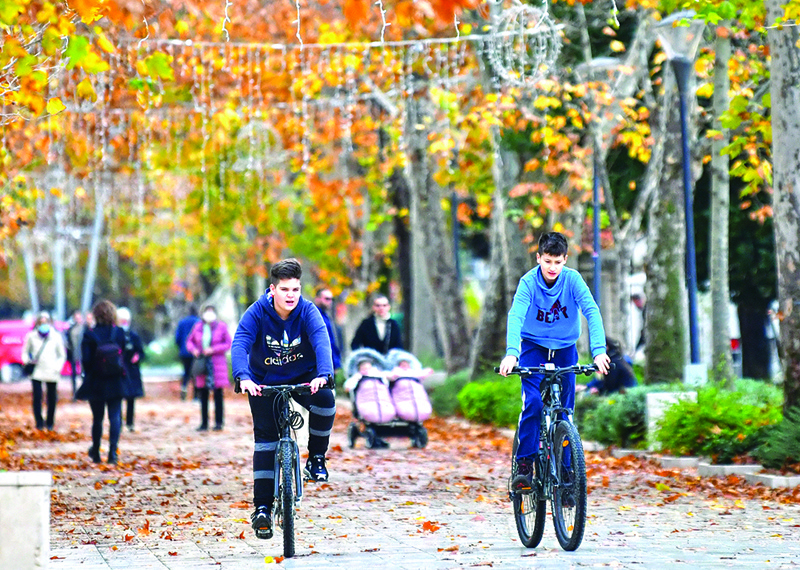
MOSTAR, Bosnia and Herzegovina: Nina Popovic has been eligible to vote for a decade but she has never had a say in the leadership of her Bosnian hometown of Mostar-a city that will hold its first local election in 12 years on Sunday. Twenty-five years after the signing of the Dayton Peace Agreement that ended Bosnia's war, Mostar is a symbol of the communal splits and broken politics that have haunted the Balkan state ever since.
Predominantly Catholic Croats and Muslim Bosniaks in the city are represented by nationalist parties that have been unable to agree on a legal issue. This has led to a failure to hold an election and meant the city of 100,000 people has not had a local council since 2012. The delay is "a sad truth and not a source of pride, but I still have hope that it will be better afterwards", Popovic, who works in a puppet theatre, told AFP of her belated chance to vote.
The agreement that made the December 20 poll possible came about largely thanks to the work of Irma Baralija, a political scientist who fought for her right to vote in court. The 36-year-old sued her country at the European Court of Human Rights, which ruled in October 2019 that she was a victim of "discrimination" and ordered the Bosnian state to organize municipal elections in Mostar. "This verdict showed that every individual is important and can bring about change," Baralija, energetic and smiling, said. "Everyone can now make an individual choice also to choose a new name on 20 December."
'Ruled by fear'
Building on the strength of her court victory, Baralija is running in the race as the leader of Nasa Stranka (Our Party), a rare multi-ethnic party in a country still divided between the Bosniak, Croat and Serb communities who clashed in the 1990s war. Baralija, a Bosniak, has been campaigning in both parts of the city and dreams of reviving the old Mostar that existed before the 1992-95 conflict carved it up.
Home to a stunning Ottoman-style bridge that peaks above the emerald green Neretva river, multi-ethnic Mostar was one of the most cosmopolitan cities in the former Yugoslavia. Today everything is arranged to discourage contact between its two communities. There are separate post offices, electricity and water suppliers, telecoms companies, hospitals, national theatres, schools, football clubs and more.
This system helps entrench the dominant nationalist parties, the Croat-led HDZ and the Bosniak SDA, says Amna Popovac, a 50-year-old businesswoman and candidate running with another small party, the Platform for Progress. - AFP










